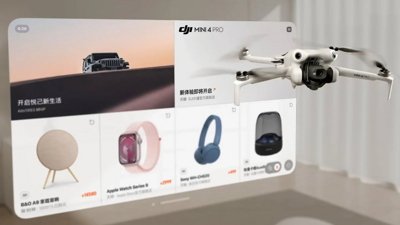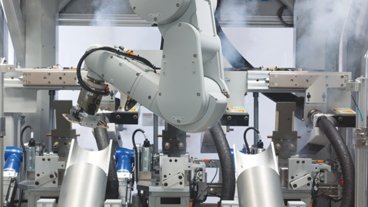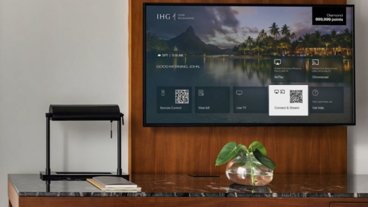Microsoft CEO hopes to reenter phone market, disputes PC shift
Arguing against Jobs' analogy that the current trend from desktop PCs to mobile devices would be something like the shift from a vehicle market one dominated by farm trucks to a one centered around individual consumers driving cars, Ballmer said he thought everything would continue to be a PC in some fashion.
"I think people will are gonna be using PCs in greater and greater numbers for many years to come," Ballmer said. "I think PCs will shift in form factors, they will get smaller and lighter," noting that some will have keyboards, some will not. "The real question is what is a PC," Ballmer said.
Referencing Jobs' analogy, Ballmer said, "There may be a reason they call them Mack trucks. But Windows machines are not going be trucks," he insisted. "They will continue to be the mass popular riser of a variety of things people want to do with information."
Asked if he thought Apple's iPad was a PC, Ballmer answered "Of course it is. It's a different form factor of PC." Ballmer also suggested that he attempted to use an iPad for taking notes at a meeting and implied that it was too slow to use.
Ballmer hammered home his PC centric views by saying, "to a man with a hammer, everything looks like a nail."
Ballmer on Windows Mobile
"We were ahead of this game," Ballmer told interviewer Walt Mossberg, "in terms of software for phones. We are not ahead of this game. We haven't fallen off the face of the planet, but we were ahead of this game and now we find ourselves number five in the market, with still tens of millions of units a year. But not anywhere near where we ought to be or should be."
Mossberg asked Ballmer what he meant when using the phrase "we learned the value of excellent execution," to which Ballmer replied, "we missed a whole cycle.
"And I think i've been quite public about the fact that I chose to make a set of leadership changes in the team of people building and executing on our Windows Phone software.
"We had to do a little cleanup, change things around," Ballmer said, noting that those efforts have targeted both "big Windows, Windows for the PC" as well as the company's mobile efforts.
"The excellence in execution, I think, is a big part of innovation," Ballmer said.
Microsoft and smartphone competitors
Ballmer noted optimistically that "market leaders [in smartphones] have shifted over twice in the last five or six years," and called the dynamic market an opportunity. Adding that at the same time, he recognizes the company's units "very consistently have to execute from an R&D perspective."
Asked about RIM, Ballmer noted "how good a job they've done on the consumer side of the business," estimating that 60-70% of the company's products are now sold to consumers rather than to the enterprise customers many people assume to be RIM's core market.
Asked what RIM's competitive vulnerability is, Ballmer said "as a general purpose technology platform, they sort of have less robustness than any of the other offers in the market," while noting that RIM is still number one in the US despite the weakness of its platform.
Asked about Nokia, Baller said he realized the company was the global leader but that the company has nearly no presence in the US. "On software side I think they're also trying to get their act together to some degree," Ballmer said. "We do have a collaboration to some degree with them in smartphones with our Office software. But you know, I think they're interesting."
 Prince McLean
Prince McLean










 Amber Neely
Amber Neely
 William Gallagher
William Gallagher

 Malcolm Owen
Malcolm Owen











